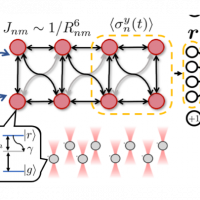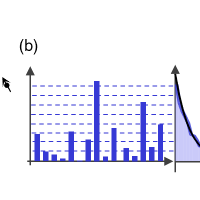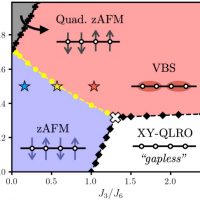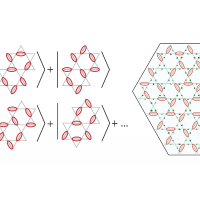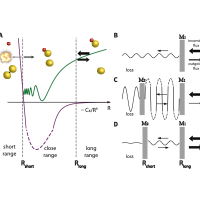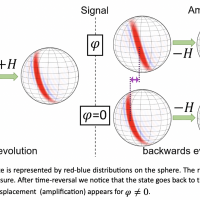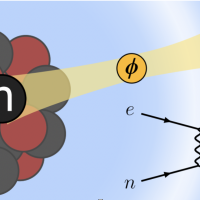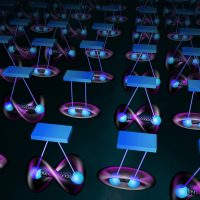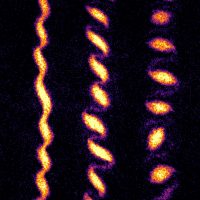News: Research Highlights
Sun November 20, 2022
Brain-inspired quantum machine learning for decision-making, entanglement witnessing, time-reversal
News type:
Mon November 14, 2022
Benchmarking quantum devices based on fingerprints of quantum chaos
News type:
Mon November 14, 2022
Quantum Mechanics Intertwines Symmetries: how to study deconfined quantum criticality using analog quantum simulators
News type:
Thu November 10, 2022
First demonstration of scaling speedup in solving an optimization problem on a programmable quantum simulator
News type:
Mon June 6, 2022
Researchers document presence of quantum spin liquids, an elusive state of matter never seen before
News type:
Wed March 9, 2022
Physicists steer chemical reactions by magnetic fields and quantum interference
News type:
Thu February 3, 2022
Searching for dark matter by probing an ultranarrow optical transition in Ytterbium
News type:
Wed January 12, 2022
Physicists watch as ultracold atoms form a crystal of quantum tornadoes
News type:
